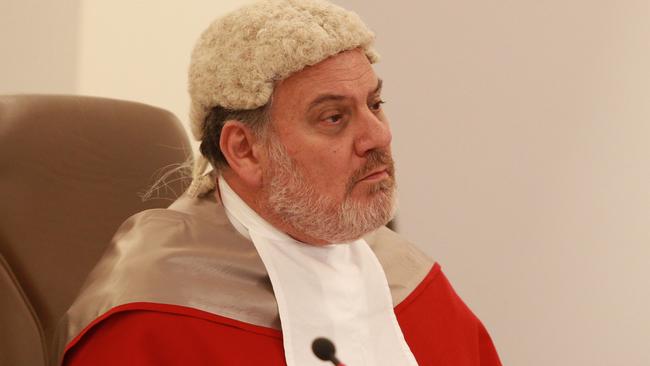Terrorism sympathiser released despite ’posing serious risk’
A JUDGE signed off on the release of a terrorist sympathiser who allegedly threatened attacks on Sydney streets, despite efforts by authorities to use tough new laws to keep him behind bars.

NSW
Don't miss out on the headlines from NSW. Followed categories will be added to My News.
A JUDGE signed off on the release of a terrorist sympathiser who allegedly threatened attacks on the streets of Sydney, despite efforts by authorities to use tough new laws to try to keep him behind bars.
In a crucial test of the NSW government’s world-first Continuing Detention Orders, NSW Police, Corrective Services and the Attorney-General asked for Greg Ceissman, 24, to remain in custody.
They said he posed a serious risk to the community after becoming radicalised by Islamic fundamentalists while serving time for car theft, driving while disqualified, dangerous driving and assaulting and resisting police in Silverwater Correctional Centre.
He had been in custody since 2013.
The Terrorism High Risk Offenders Assessment Committee strongly recommended he stay behind bars.
YOUTHS AT RISK OF RADICALISATION TO BE MONITORED
EXTREMISM ON RISE BUT ONLY 12 PRISONERS THROUGH DERADICALISATION PROCESS
They argued Ceissman had allegedly threatened to bomb Bankstown Shopping Centre and shoot up Marrickville Police Station and they could not risk letting him walk free.
Just five days after a Supreme Court judge signed off on his release, The Daily Telegraph can reveal Ceissman was thrown back behind bars yesterday after police caught him looking at the map of the NSW Police Academy on Google Maps, in contravention of orders not to use the internet.
His activities were of concern to authorities because of his alleged earlier threat to launch a terror attack on the Marrickville Police Station.
Ceissman’s release from prison by Justice Stephen Rothman of the Supreme Court was subject to strict interim supervision orders including unexpected visits, wearing an ankle bracelet, letting authorities know of his movements and refraining from using the internet.
It was during an unexpected visit that authorities busted Ceissman in breach of his orders.
In November, the NSW government introduced the Terrorism High Risk Offenders Bill to keep offenders locked up if they posed an unacceptable risk of committing serious terrorism offences after completing their prison time.
It allowed the Supreme Court to keep those who placed an unacceptable risk of terrorism behind bars on continuing Detention Orders or Extended Supervision Orders.
RELATED:
A highly placed intelligence source told The Daily Telegraph dozens of prisoners have been radicalised by Islamic fundamentalists while behind bars and the new laws would likely be used in greater frequency over the next 12 months to two years.
But the source said Ceissman’s release did not mean the new legislation was flawed. The source argued the legislation was effective because Ceissman was back behind bars barely a week after his release, and it was difficult to prove someone intended to commit a crime.
But the preference would have been for Ceissman to remain behind bars, which was understood to have been the strong recommendation made to the Supreme Court.
Ceissman’s family is well known to police.
The NSW laws mirror similar Commonwealth legislation designed to keep behind bars suspected-terrorists authorities believe pose a risk to society.



